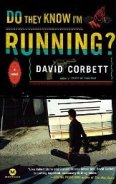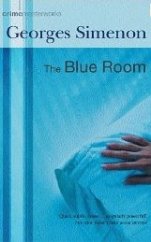HJ Hampson’s debut The Vanity Game is one part satire, one part crime novel, plunging into the murky hinterland of football fixers who will go to extraordinary lengths to protect a cash-cow power-couple. It has attracted some high profile fans, including Val McDermid and Megan Abbott, two ladies who know a lot about the dark side of the sporting world, and with the Euros now in full swing it couldn’t be more timely.
Heather was kind enough to join me for an interview…
The Vanity Game is out today, can you tell the readers a little about it?
It’s a black comedy, noir-thriller about a footballer called Beaumont Alexander. He goes to a celebrity party, does something stupid and finds A-list lifestyle spinning out of control and into the path of a shady cartel of gangsters.
To say you’re scathing about sleb culture would be an understatement, why does it rile you up so much?
It seems to me that there was a point somewhere in the 2000s where celebrity culture exploded. It was probably the arrival of Big Brother and reality TV, coupled with the launch of Heat, but suddenly the public’s hunger for fame increased, and dull and boring people were becoming famous. Back in the Nineties, Kurt Cobain’s suicide hardly garnered any coverage from the mainstream news, yet he was one of the biggest and most talented musicians on the planet, but look what happened when Jade Goody died… her ‘cancer wedding’ was streamed live on some shit cable channel or whatever, and the celebrity magazines were spewing out hundreds of column inches over it. Why?
Do people really care? I feel that some people are duped into thinking they care.
I do really dislike celebrity magazines. I feel they have a misogynistic agenda. In every other edition celebrities in the bikinis are splashed across the covers, with the alternating themes of being too fat or too thin, and in every issue there is story about some stupid celebrity’s crazy diet. I really don’t think this absolute obsession with women’s (as it is always the women), bodies does any good to the young girls who are reading these magazines.
When I was younger, magazines like Smash Hits featured feisty female pop stars and printed the lyrics to songs like Faster by the Manic Street Preachers. Now teenage girls only have banal columns by people like Alex Gerrard and stuff about grapefruit diets to read, while teenage boys are, apparently, all watching free hardcore porn on the net. That generation is going to be seriously fucked up.
Or, of course, you could just read Hello!, which seems to think that people qualify to have their pictures in magazines because they are aristocratic.
I don’t know which is worse really. As you can say, it does rather rile me up!
Where did the inspiration for Beaumont Alexander come from?
I always wanted to write about a famous person. I find the concept of fame so interesting… so many famous people are messed up aren’t they? Some people get so famous that they become totally detached from all reality, and I wanted to see what a character like that would do… if you are detached from reality, you are also detached from the social code somewhat. Originally, I initially intended him to be a film star, it seemed more glamorous, but then there was a lot of press interest in footballers and their girlfriends. I specifically remember the 2006 World Cup, when all the wives and girlfriends were allowed to go to Germany. Even before they went, the celebrity magazines were profiling all the girlfriends, bitching about how they dressed etc, but out there it was a total media circus. I remember a reporter saying in the Guardian that he witnessed a paparazzo literally trip over himself to get a picture of England goal-keeper, Paul Robinson’s, father eating his dinner. Who wanted to see that?
It was the time there was a lot of stuff in the press about footballers and their sex lives… I guess after the David Beckham and Rebecca Loos thing. And then you got the feeling Victoria Beckham wouldn’t leave her husband because, together, they were such a mega-brand. I remember I was travelling through Thailand on a coach and it stopped in this backwater town, off the backpacker trail. I got out of the coach and there was a huge billboard with Beckham on advertising a mobile phone. I just thought his image is more famous than Jesus’, but what really is behind the image?
So he came from all that, but he not based on any one player in particular!
There’s been a string of high-profile crimes involving footballers in recent years, mostly smoothed over by the clubs, do you think they would ever go as far as covering up a murder?
Well, I think they have covered up rape, or at least paid victims off, so why not murder? I think there are some very dodgy people involved in football… it’s blatantly corrupt in some areas. Tom Bower’s Broken Dreams gives you a good idea of what happened back in the nineties, and it’s probably got worse. There’s also been rumours of gangsters extorting protection money out of players – I guess many of the English players who came from very rough inner cities areas grew up with people who later turned to crime, so undoubtedly, some have connections with people who commit or would commit murder. With the money in football, of course it could be covered up: if, say, it was a young, hot-shot striker who was integral to a team winning the league or the national team, yeah, I think anything could be covered up.
It’s been a tough road to publication for you, what advice would you give to other writers now you’ve broken through?
Just don’t give up! Show your work to people who preferably aren’t close friends or family, and listen to feedback. And network, and exploit any connections you have. I think it’s a tough road for most people, and if you want to go down the agent/ publisher route, rather than self-publishing, it’s getting tougher by the day, so you have to have a thick skin and a lot of determination.
You’ve been very active on social media with this book, how have you found the experience of engaging so directly with readers?
Well, Blasted Heath had the idea of setting up a blog and Twitter feed for Beaumont and that has been loads of fun. I’ve found it surprisingly easy to tweet as a footballer, which is a bit worrying. As this is an e-book, online engagement is really important but the crime fiction online community has been very supportive. There seem to be a lot of places on line where crime fiction lovers hang out, maybe more than other book genres (apart from fantasy and sci-fi), so that has been really helpful.
Has Beaumont’s Twitter account attracted any wannabe wags yet?
No, sadly he has not. But then his girlfriend, Krystal, would not be happy if it did anyway!
As an Essex girl I’ve got to ask, why did you choose to set the book here?
Well, I wanted to set parts of it in London, as it’s the capital of ‘sleb culture. Beaumont plays for an unspecified London club… and he’s a bit too, erm, chavvy, to live in any of the other Home Counties. Places like Surrey seem to be more for film stars and rock stars don’t they? I come from Cheshire myself, which is actually known as the ‘footballers’ belt’, so I could have set it there, but I didn’t want people to think he played for my team, Liverpool, because he’s much too nasty for that!
I would like to stress that I wrote the novel long before The Only Way is Essex was even a sparkle in some evil TV producer’s eye.
So, what’s coming up next for you?
I have just sent my second novel to my agent, but it’s nothing like the The Vanity Game. I am contemplating writing a quasi-sequel though if people like the book… not featuring Beaumont but maybe giving some of the other characters a chance to shine. I’m also working on a couple of screenplays.
The Vanity Game is available now.




